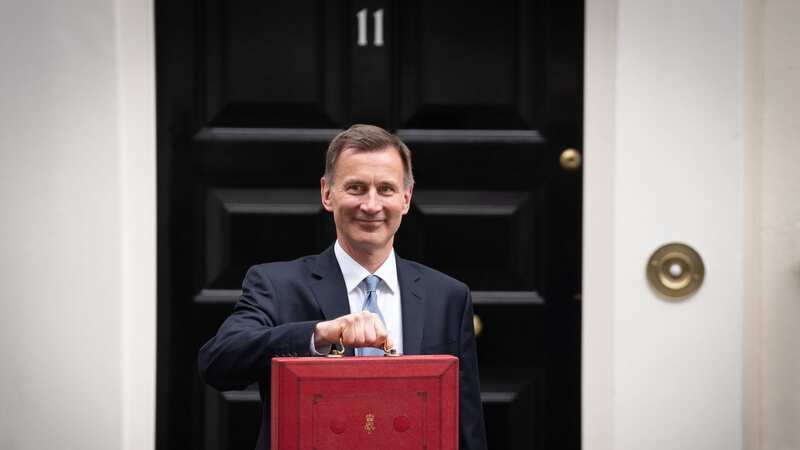Britain warned Austerity 2.0 will see spending on public services slashed again

Britain should brace for a fresh wave of austerity after next year’s general election, experts warn today.
Whitehall ministries with unprotected budgets face spending cuts of about 16%, according to the Resolution Foundation. The living standards think tank said the level of slashing would equal the cuts unleashed by Tory axeman Chancellor George Osborne more than a decade ago. The warning comes as Mr Osborne’s latest successor, Jeremy Hunt, prepares to unveil his Autumn Statement mini-Budget later this month.
Foundation analysts say that higher inflation - currently running at 6.7% - will initially appear to improve Mr Hunt’s hand as he gets ready to announce tax and spending plans. “Stickier-than-expected inflation is leading to higher tax receipts and lower borrowing that will increase the Chancellor’s fiscal headroom to around £13billion in his Autumn Statement,” says the think tank. “But this extra headroom is a ‘fiscal illusion’ founded on pretending the higher inflation that boosts tax revenues won’t push up spending too.”
The headroom will have doubled compared with predictions at last March’s Budget, when it was forecast to be £6.5bn. The revelation could trigger renewed calls from desperate Tory backbenchers for tax cuts in the run-up to the general election, widely expected next autumn. The Foundation admits the “level of headroom is … still likely to lead some to believe that there is now space for pre-election tax cuts”.
It warns: “Looking ahead, public service spending plans were set in cash terms before the recent inflation surge. This means that per person spending on unprotected departments, such as the Home Office, Transport, Justice, and Levelling Up, Housing and Communities is now set to fall in real terms by 16%, or £20bn a year, between 2022-23 and 2027-28.
 Teachers, civil servants and train drivers walk out in biggest strike in decade
Teachers, civil servants and train drivers walk out in biggest strike in decade
“This is up from 11% at the time of the March Budget, and would mean cuts being implemented at a similar pace to those overseen by George Osborne in the early 2010s – when per capita spending on unprotected departments fell by 16% between 2010-11 and 2013-14. While the Chancellor may choose to allow these fiscal illusions to run until after the next election, that does not remove the fiscal reality of the pressures involved.”
Research director James Smith said: “As well as causing a huge cost-of-living crisis, Britain’s bout of high inflation is also flattering the public finances, with higher pay growth feeding through into higher tax revenues. But while this will give the Chancellor the appearance of extra wriggle room in his Autumn Statement, it is in fact a fiscal illusion founded on the idea that higher inflation will increase tax revenues without also pushing up spending on public services.
“While these fiscal illusions may be parked until after the election, higher public-sector costs and wages cannot be wished away. It’s increasingly clear that spending plans pencilled in for after the next election cannot be delivered. Fiscal forecasts that ignore that reality aren’t worth the paper they’re written on.”
Read more similar news:
Comments:
comments powered by Disqus

































